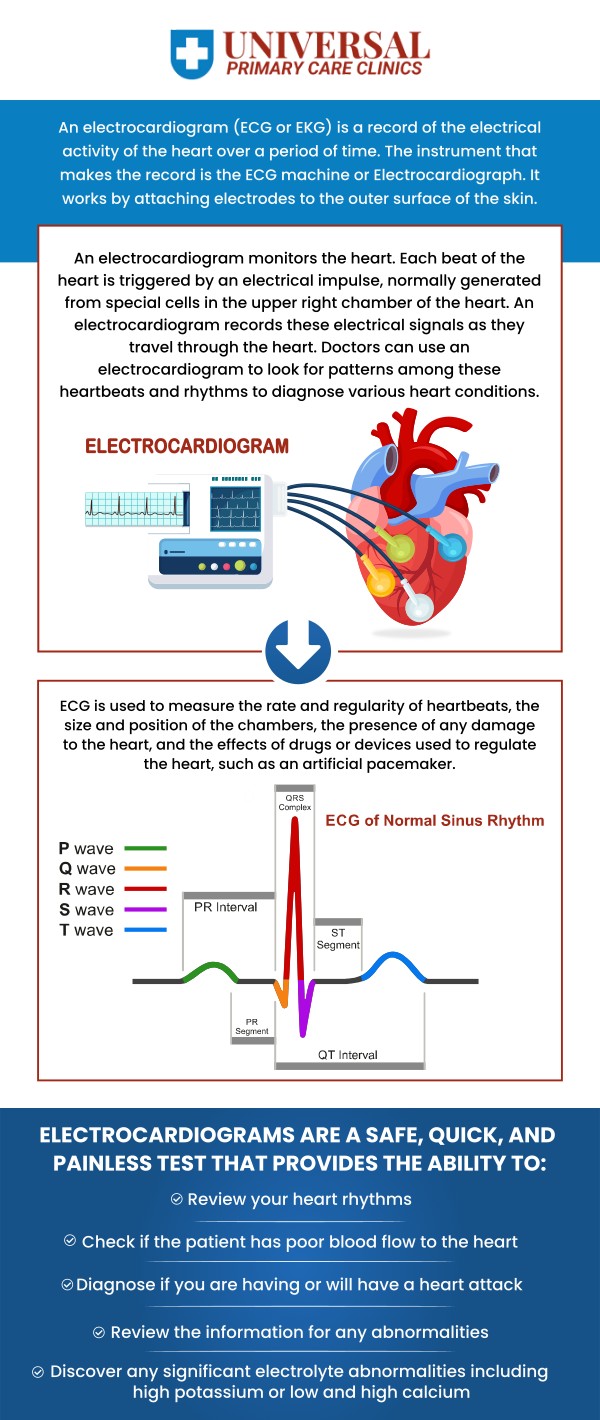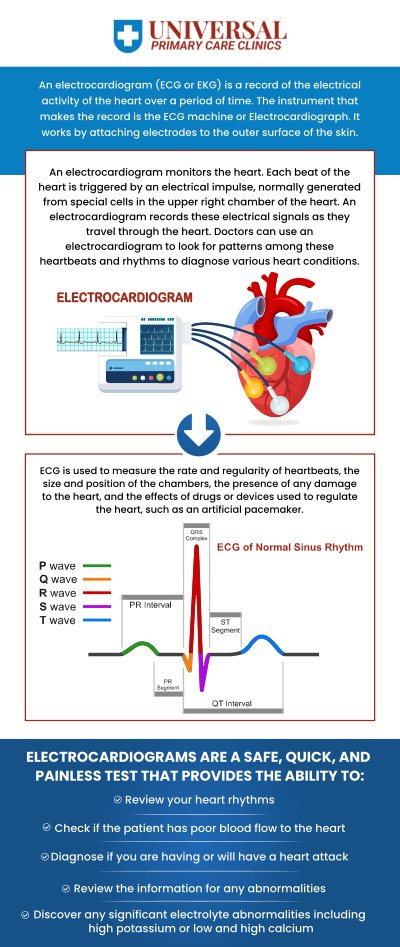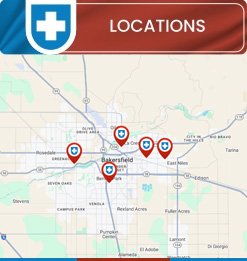The Importance of Early EKG for Heart Health
At Universal Primary Care, we emphasize the importance of early EKG screenings to monitor heart health. An EKG (electrocardiogram) is a simple, non-invasive test that helps detect irregularities in heart rhythm and function, often before symptoms appear. Early detection of heart conditions can significantly improve treatment outcomes and prevent serious issues like heart attacks or strokes. For more information, contact us or book an appointment online. We have convenient locations at Brimhall Primary Care Center, Ming Primary Care Clinic, Niles Primary Care Clinic, Universal Q-Street Primary Care, and Niles Family Medicine in Bakersfield, CA.


Check Out Our 5 Star Reviews



Additional Services You May Need
▸ Annual Physical Exam
▸ COVID-19 Testing
▸ Chronic Disease Management
▸ Vaccinations
▸ STD Testing
▸ Primary Care
▸ Influenza (Flu)
▸ Common Cold
▸ Asthma
▸ Medical Weight Loss
▸ Diabetes
▸ School Physicals Exam
▸ Sports Physicals
▸ EKG
▸ Geriatric Care
▸ View All Services


